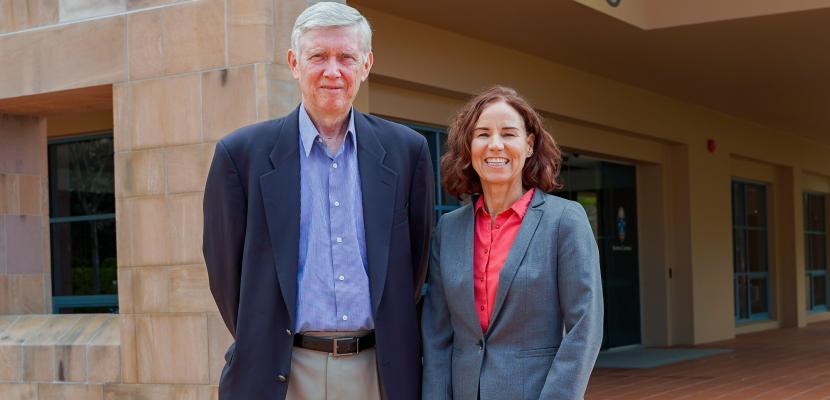
Professor Paul Beamish and Associate Professor Colette Southam.
Business case studies authored by Bond University academics will be published and distributed globally by Ivey Publishing at Canada’s Western University under a new partnership.
Bond is the first Australian university to achieve co-brand status with Ivey, recognising the university’s leadership in producing uniquely Australian business case studies.
The cases are used to teach students by exposing them to genuine challenges faced by organisations and are often written with the input of senior management.
Recent Bond University cases have involved Domino’s Pizza, Wyndham Destinations and Medibank Private.
The Ivey-Bond case collection launches with 10 published cases with accompanying teaching notes, 3 notes, 15 supplementary items, and 14 foreign language translations including Japanese, Simplified Chinese, French and Spanish.
Associate Professor Colette Southam of the Bond Business School said case studies empower students to use higher-order cognitive and critical thinking skills to solve real-word problems.
“Students get practice making, defending, and communicating their decisions to unstructured problems like the ones they will face after graduation,” said Dr Southam, who is also an Adjunct Associate Professor at the Ivey Business School.
“Case studies support the personalised and transformational learning experience that is a hallmark of Bond University.
“This is also an opportunity to address a shortage of case studies about Australian organisations which presents significant challenges in introductory courses where students are already tackling new concepts.”
Oops, something went wrong.
Ivey Publishing is the leader in cases with a global perspective, including the largest Canadian, Chinese and Indian case collections. With nearly 8000 titles, the Ivey collection hosts a variety of academic disciplines, industries and difficulty levels.
Professor Paul Beamish of the Ivey Business School, and a Visiting Professor at Bond, has written more than 160 case studies and has helped popularise the case method around the world, particularly in developing countries.
He said case studies put students in the shoes of the business leaders they hope to become.
“Students confront a problem from the perspective of functional area manager or the company president, so there's no sitting on the fence, you've got to be able to make a decision,” Professor Beamish said.
The case study method depends on companies being prepared to share some of their internal processes to help educate the next generation of executives.
“Some organisations understand that we can't just learn from successes. Thankfully, many are willing to talk about the problems that they encountered,” Professor Beamish said.
Link to the Ivey-Bond case collection: